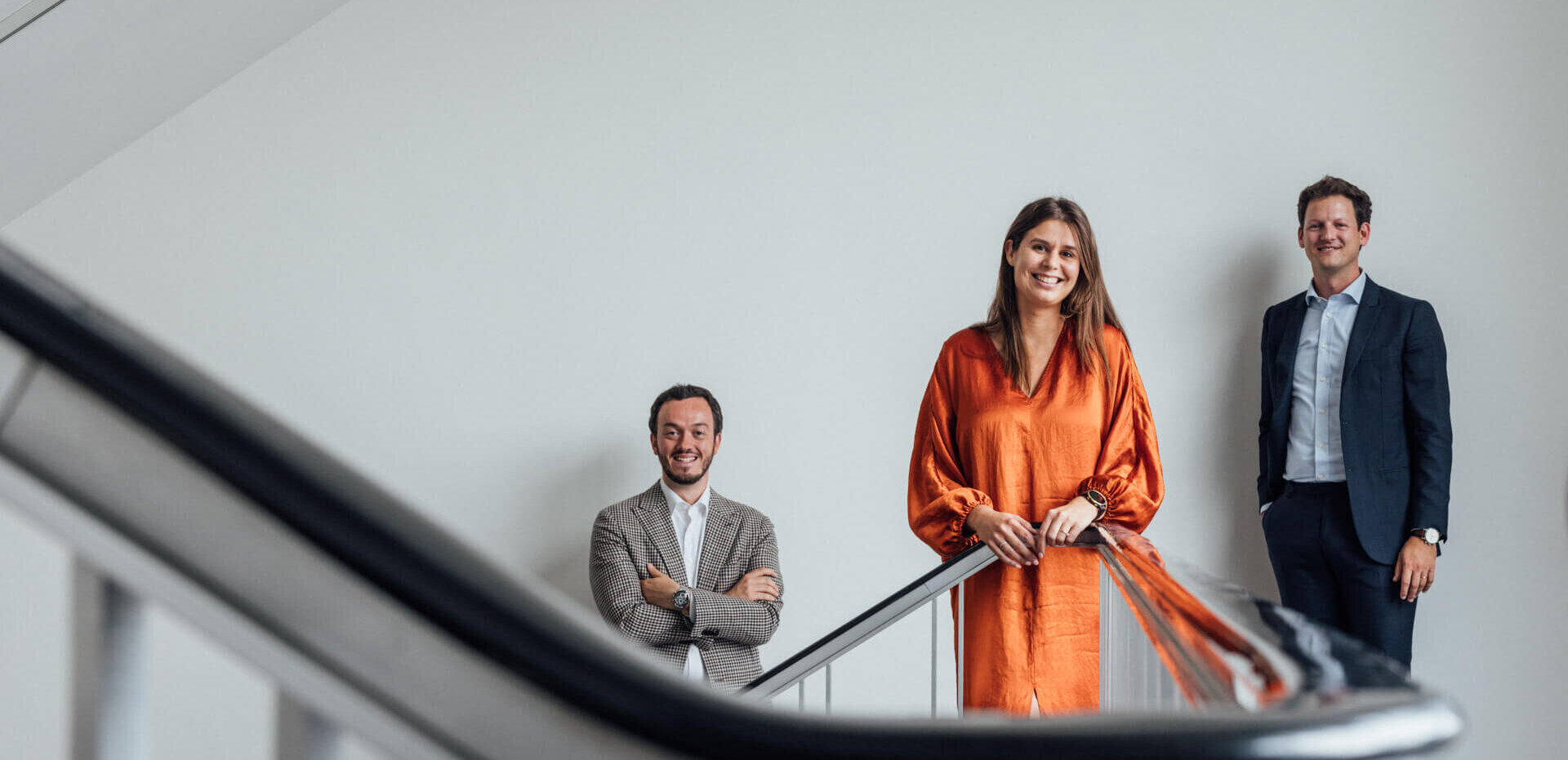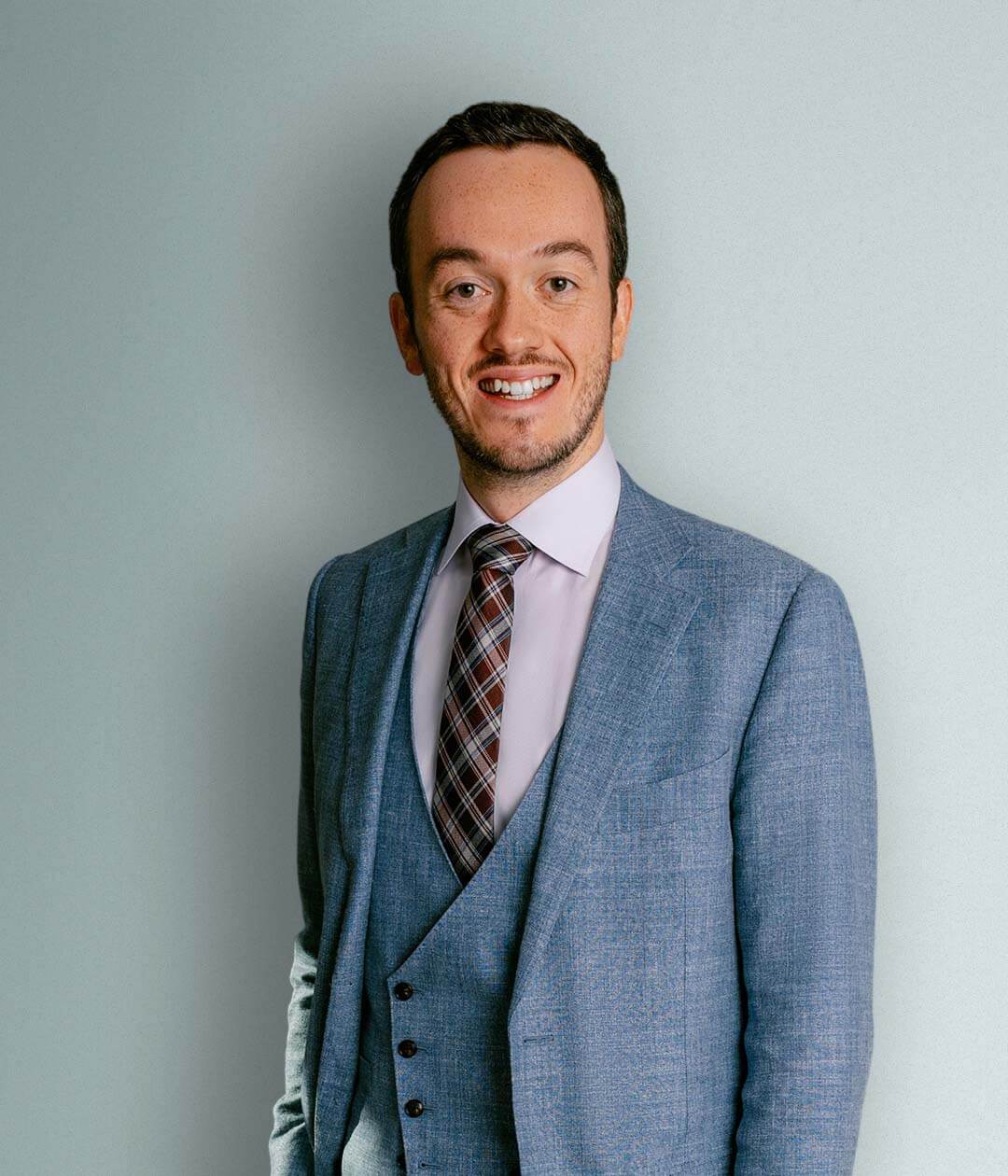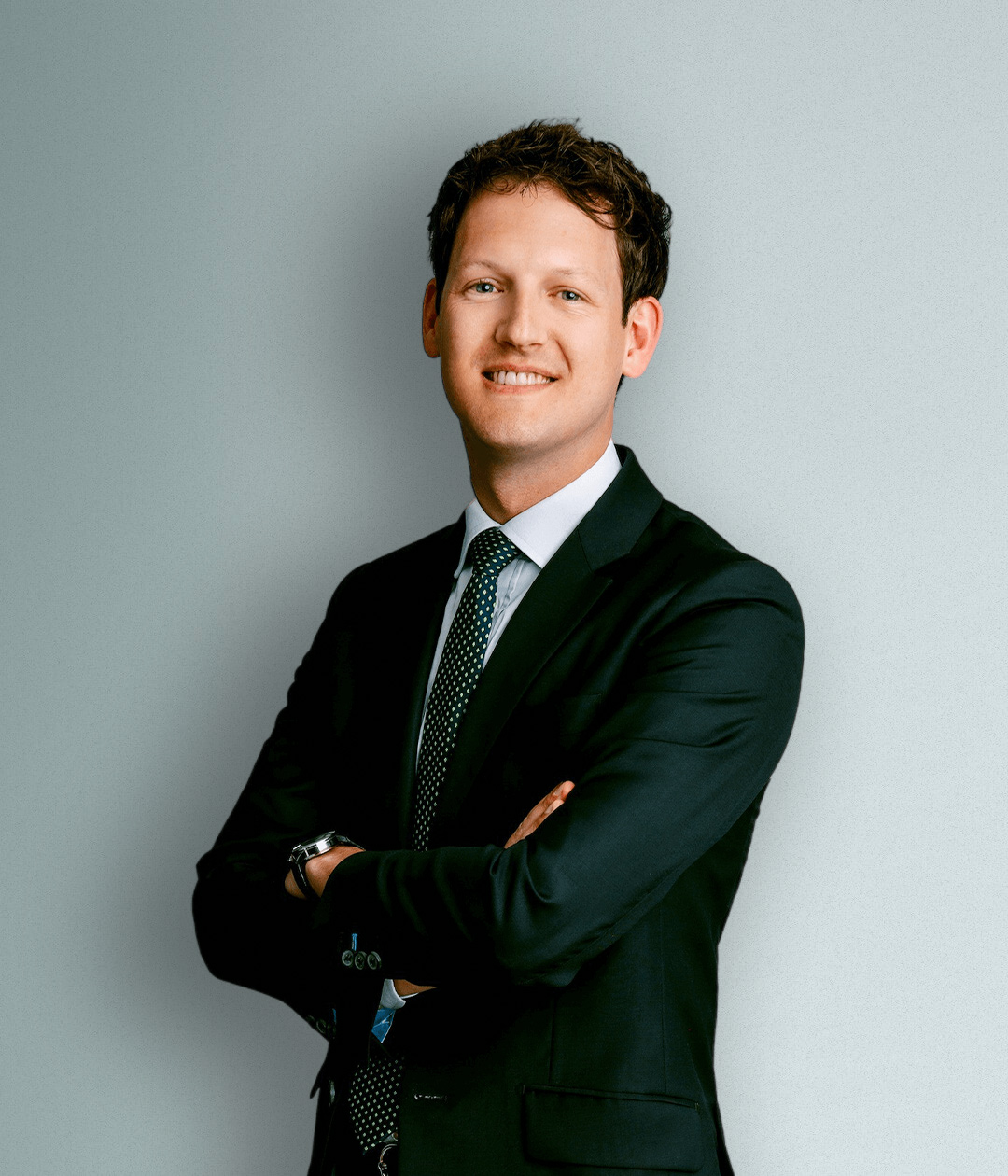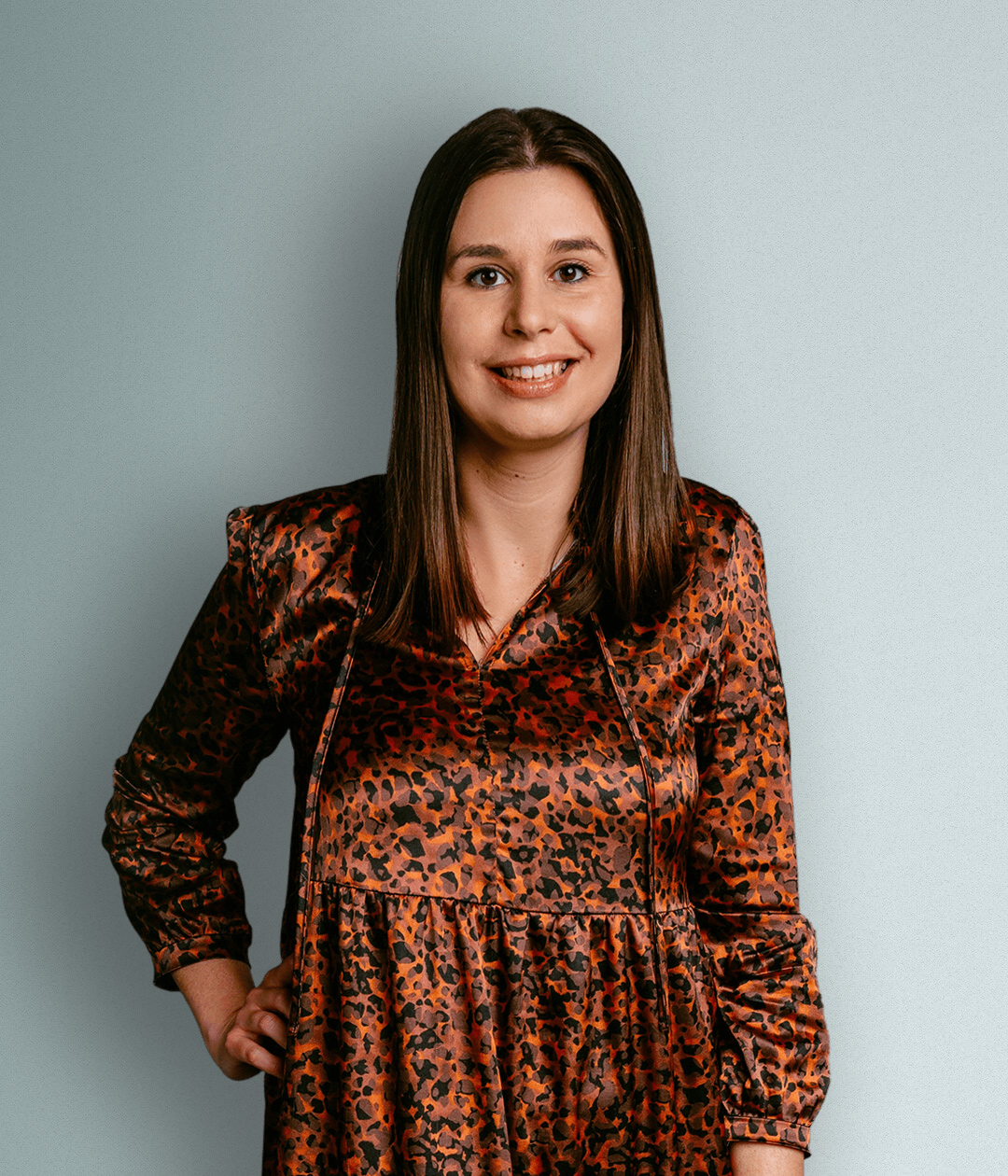Good afternoon, Nick, Sarah, and Thomas. What role does each of you have at Monard Law?
Sarah: “I’ve been part of the public law team at Monard Law since September 2016. I’m a Senior Associate, and I focus mainly on environmental law. Within the field of environmental law, I specialize in matters relating to the environment and soil, advising governmental bodies and companies on these issues.”
Thomas: “This is my 10th year in the public law team at Monard Law. I explored other horizons for a little more than a year, but I returned to Monard Law in 2019, and I’ve been happy about my decision ever since. In the public law practice, I focus on matters related to public procurement.”
Can you give us an example?
Thomas: “I deal with cases in which a government wants to make a major purchase of goods or services or wants to have construction works carried out. For these types of transactions, they must follow very specific procedures when they want to designate a private company or partner they decide to do business with.”
 Nick, what is your role?
Nick, what is your role?
Nick: “I’m the youngest of the old gang. This is my ninth year at the firm. Regarding the field of public law, you can pretty much break it down into three branches: environmental law, public procurement, and general administrative law. My field of expertise is general administrative law, together with environmental law. General administrative law is actually a miscellany, so any type of matter that you can’t really place under the other two branches, yet still belongs to the scope of public law. It can concern all types of matters: expropriations, local and regional taxes, and also urban planning, environment, and spatial planning.”
Why do clients choose the public law team at Monard Law?
Thomas: “For our pragmatic approach. We try to get into our client’s head, trying to identify: what keeps them awake at night? What is important to them? And we try to answer these questions in a way that is tailored to the client’s needs. We don’t write long memos in which we make legal aspects complex and unnecessarily difficult. If you advise a corporate manager or executive, you shouldn’t necessarily deliver a 10-page memo; they want to know only what to decide on. But if you advise companies that have their own internal legal department, you may of course be required to elaborate more. That’s why we always adapt our approach to our clients. This pragmatic approach is endorsed strongly by the partners who lead our team, Koen Geelen and Wouter Moonen.”
Nick: “If you can explain something in three sentences, then you shouldn’t write three pages.”
Nick: “Our team has extensive legal knowhow. There are hardly any legal issues that we have never come across before. But this is not the essential point here, which we learned from day one. What matters is what the client needs. If you can explain something in three sentences, then you shouldn’t write three pages.”
Sarah: “We are true specialists in our subject-matters. Public law is quite broad, so we—and our junior associates—each have our own area of specialization. In that regard, we help them grow and develop their knowledge and experience.”
Sarah: “I really feel like a Monardian.”
What types of clients do you work for?
Nick: “We work with local governmental authorities, cities, and municipalities, from Limburg to here in Antwerp, and other cities throughout the country. We work with other entities too, such as inter-municipal partnerships, provincial development agencies, and public and private hospitals.”
Sarah: “Besides governmental authorities, our clients include companies, regional airports, architecture firms, environmental research consultancies… We also advise several major property developers and ‘class 8’ construction companies.”
 You’ve all received accolades recently in Legal 500. Congratulations!
You’ve all received accolades recently in Legal 500. Congratulations!
Thomas: “Thank you very much. That’s the result of the hard work we’ve done over a long period of time. Everyone focuses systematically on the quality of their work. The legal rankings, such as those in Legal 500 or Chambers & Partners, are proof of that.”
How do you get them to mention you?
Sarah: “To be mentioned on these rankings, your references are very important. You give the directory researcher a list of contact persons. The researcher interviews these people and asks if they are satisfied with our work. These contact persons are clearly the ones who determine whether you deserve to be mentioned and how you should be ranked. What makes the Legal 500 rankings so valuable is that the objective evaluation mainly takes our clients’ feedback into account.”
As you attract major clients, they must have a lot of confidence in your team. Who actually put Monard Law’s public law practice on the map?
Thomas: “That’s a continuous process. But from the outset, Koen Geelen did this from our Hasselt office. Wouter Moonen is also making a name for himself. The three of us are the next generation that wants to continue to develop this legacy. Not only in Limburg but also throughout Flanders and Belgium, and even across borders.”
Thomas: “There would be many colleagues who would be among my group of friends if I had not known them from work.”
Nick: “I saw Wouter evolve from being a Senior Associate to becoming Partner. When I started here, Wouter’s role at the time was the same as the one we have now: guiding junior associates, hands-on, checking everything, and discussing everything together. I’ve grown a lot thanks to Wouter and Koen, and we are still growing together with them.”
 What is the most valuable lesson that you all learned from Koen and Wouter?
What is the most valuable lesson that you all learned from Koen and Wouter?
Nick: “Dare to think outside the box.”
Thomas: “Indeed, to question the law. It doesn’t always work, but when a case seems to be hopeless at first glance, we try to look beyond the boundaries. This often leads to an unexpected outcome.”
Sarah: “We always analyze issues within the legislative framework, but we try to think outside the box. For example, we learned from Wouter and Koen how you can be creative in applying the scope of the law or how you can add elements to the meaning of certain legal concepts.”
Thomas: “Another valuable lesson that we learned from Koen and Wouter is to remain calm at all times. They both work very hard, but they do so in a tremendously calm way. You would never see them run in the halls or react stressfully when they are under pressure.”
Nick: “There is space to make mistakes. When someone makes a mistake, nobody points a finger at him or her. We take care of it together. It makes this place a safe environment for a junior to learn and develop.”
What lesson do you wish to pass on to the newcomers?
Nick: “Remaining calm is most important, according to me. We have strict procedural deadlines that are set by law, and these are non-negotiable. Yet, we’re still able to work calmly and efficiently. And we’re certainly not going to create unnecessary stress for ourselves. We tell this to our younger team members as well. Don’t listen to what other lawyers say about having to complete everything before midnight. Take your time, talk to us, and we will do everything we can to achieve a good outcome together.”
There are people from different generations in your team. What is the age gap between the youngest and the oldest right now?
Thomas: “Around 40 years. Cato is the youngest. She has just joined our team.”
Do you notice a generation gap?
Nick: “I do notice differences, but they’re mainly positive.”
Thomas: “The younger members pay more attention to mental fitness and work–life balance. They don’t let the typical boundaries between boss and worker confine them. How you deal with people is important. This is higher on their list of priorities. And rightly so, everyone should bear that in mind. Before, people stormed into the office and worked very hard to get as far as possible. Now, there is a healthier balance between work- and private-life, and we certainly encourage that.”
Nick: “You get the chance to develop yourself in a safe environment.”
Sarah: “Koen co-founded the firm in the 90s. At that time, work–life balance was hardly on the list of priorities. It was hard work to develop and expand the firm. We joined the firm at time when the business model was running smoothly. But finding a good work–life balance continues to be a challenge.”
Nick: “Younger team members also dare to ask questions: Why should we do it this way? Why not take another approach? Such balance and the human well-being have become a lot more important in recent years.”
How do you find a good work–life balance for yourself?
Sarah: “The fact that I can always rely on our team helps me with my work–life balance. Sometimes, you know there is no balance at all. It can be very busy for several days or weeks, but it’s all right to take things a little easier in the following weeks. I train with a personal trainer every Friday morning, and our team respects that.”
Nick: “This is typical for our team. If the matters are there and the deadline is approaching, you give it a 150 percent. If they’re done, you can have more time for yourself in the following week.”
 Thomas: “There are two sides to the flexibility we have in our job: sometimes you’re expected to be flexible, but you can also take back that flexibility. That’s how you can define the right balance for you.”
Thomas: “There are two sides to the flexibility we have in our job: sometimes you’re expected to be flexible, but you can also take back that flexibility. That’s how you can define the right balance for you.”
Do you feel you are team public law or team Monard Law?
Nick: “Both, actually. We are one large firm, but our team has its own rules and way of working.”
Thomas: “For the matters, you usually work within your team and your area of specialization. But I really like being a part of a larger whole as a Monardian. We have a Monard Law-day, and we go on short-ski trips together. These are moments when everyone from the different offices comes together and you feel proud when you see the entire Monard Law team.”
Sarah: “The strengths within our team, such as pragmatism, openness, and flexibility, are also encouraged by Monard Law. That DNA is clearly present in our team.”
What are the traits of a Monardian?
Thomas: “Someone who is in balance. Someone who is happy to run the extra mile for clients, but who also has a life outside work and pursues other interests, such as sports or who simply likes to lie on the grass and gaze at the sky from time to time.”
Sarah: “I often sense whether someone is a Monardian or not. They’re such cool people. Reaching out to them is always easy, regardless of which office you work in. Last year, we had a huge team-building event in Greece. It doesn’t matter who’s sitting next to you because they’re always great company.”
Do you have a personal ambition at Monard Law?
Thomas: “I wish to continue to build my career here in the firm and in a strong public law team.”
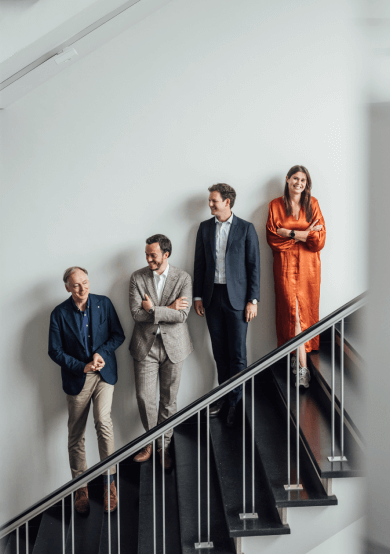 Sarah: “I have the same ambition. You get that confidence, which is great. But I would like to have children one day and don’t know how that will play out yet. But the firm thinks along with us and supports young parents in this. Because that should be possible: being a young mother and a partner.”
Sarah: “I have the same ambition. You get that confidence, which is great. But I would like to have children one day and don’t know how that will play out yet. But the firm thinks along with us and supports young parents in this. Because that should be possible: being a young mother and a partner.”
Nick, what is your ambition?
Nick: “My ambition actually doesn’t involve the partner-track process. I prefer to focus on the law aspects in every matter and to unravel them. The firm makes this possible for us to continue to do this at a high level.”
Sarah: “That’s also important. I admire Nick’s knowledge and how he shares it with the next generation.”
To round up, do you all have an ambition within your public law team?
Nick: “Yes, to develop our practice throughout Belgium.”
Thomas: “The qualities and credibility are there. Our team mainly works out of the Hasselt and Antwerp offices. We want to develop a strong department in Brussels and Ghent. Our focus now is on Flanders, but there is also Brussels and the French-speaking community in Belgium. Some laws are substantially different, but in these areas, including outside Belgium, there still is a lot of potential.”
Sarah: “Indeed. For me, the ambition is to develop top-of-mind awareness among those who are faced with a public law issue. They should think of us immediately. We still have work to do on that.”
